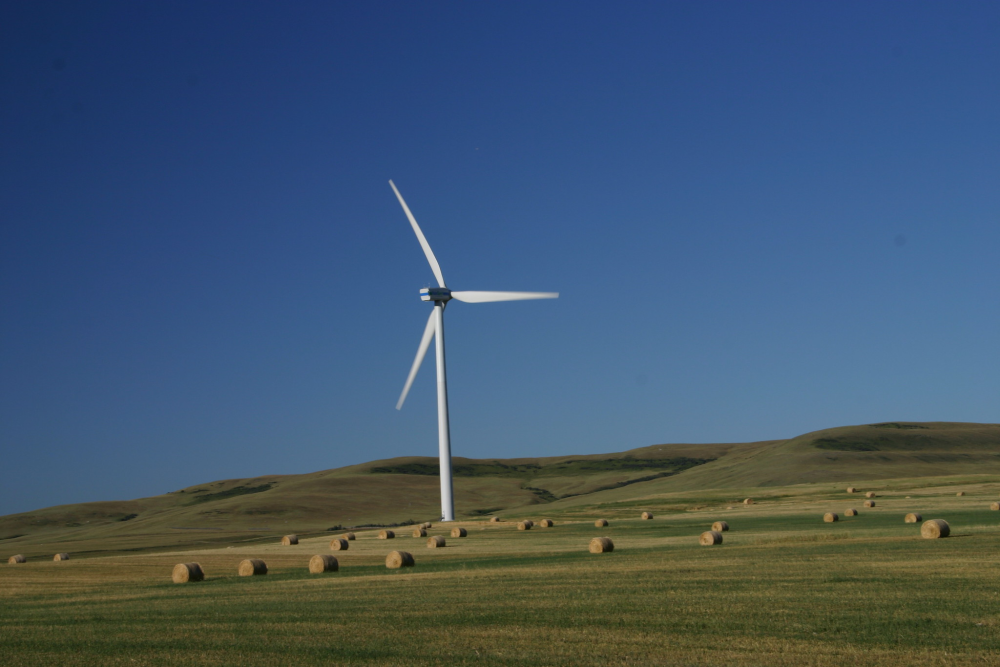This was the year the world made it clear they want climate action, and they want it now. Millions of people joined Greta Thunberg demanding action. For the first time Canadians made climate change a defining issue at the polls. To many, it felt like a turning point. But in the same year, greenhouse gas emissions globally reached a record high, pushing us closer to planetary tipping points. And world leaders at the UN climate conference, COP25, in Madrid failed to act on the scientific imperative. With climate change costing Canadians billions a year, and the human cost of warming more evident than ever, the appetite for climate action will only grow.
While there’s more work to be done, it’s worth reflecting on gains we’ve collectively achieved over the last year. We’ve been working hard this year to advance strong climate policies, and just as importantly, holding governments to account when progress is rolled back. We’ve used our convening power to work with business and industry to find common solutions that benefit the environment and the economy, and we’ve researched and advocated for clean energy solutions to help Canada meet its climate goals.
Where we’ve been
While in some quarters climate action remains a polarized issue, many Canadian businesses and industries continue to benefit from strong climate policy and are helping position Canada to be competitive in a decarbonizing global marketplace. The Catalyst Business Coalition, a group of more than 45 businesses, ranging from financial institutions, to breweries, to clothing companies came together this year to say that climate change is everyone’s business. We’re proud to convene this powerful group to demand climate action from decision makers, and to showcase climate leadership in the business sector.
Next year we can expect to see more and bigger renewable energy deals from the Business Renewables Centre Canada, a modern marketplace that connects businesses and institutions looking to buy renewable energy directly with developers. As the cost of renewables keeps falling, going green just makes good business sense. In that spirit, a national network of businesses including UPS, Purolator, and Canada Post is coming together in our Urban Deliveries Solutions Initiative to clear congestion and create safer streets in Canadian cities, while getting us our packages on time and reducing air and carbon pollution.
Nationally, we’ve seen progress in critical climate policies. Canada is approaching the one-year anniversary of a national price on pollution — a huge win for sensible, cost-effective emissions reduction tools. And the majority of Canadians are on board. In October’s election, two-thirds of Canadians voted for a party that supported a carbon price. We’ve seen the federal government hold strong on methane regulations by not accepting weak proposals from the provinces. Methane is a major source, and one of the most potent, of greenhouse gas emissions, and Canada has proven itself a global leader, setting a strong standard. The clean fuel standard, one of the lesser known, but most important climate policies, has had a big year, with the Pembina Institute at the table as part of the technical working group. The standard, while not finalized, has been designed to do some heavy lifting to set Canada’s energy system on a path to decarbonize, by incentivizing innovation and fuel switching across all sectors. The launch of the Indigenous Off-Diesel Initiative, of which we’re proud to be a part, and our ongoing renewables in remote communities work, is an important step in clean energy transition for remote communities to reduce diesel dependency. This is both a climate change mitigation measure and a critical act of Indigenous energy sovereignty. We look forward to continuing this work this year at our 2020 Renewables in Remote Communities conference.
Along with more climate action, Canadians want climate accountability — and B.C. delivered, with amendments to the Climate Change Accountability Act, which requires government to set incremental targets and regularly report on emissions (increases and reductions), making B.C. the most transparent and accountable jurisdiction in North America. This government is putting legislation where its mouth is, to break the habit of governments the world over of setting climate targets and missing them. In Winning on Climate, our action plan for a decarbonized Canadian economy, we point to the need for the federal government to follow suit. This looks promising, with the Environment and Climate Change mandate letter calling on the ministry to set legally-binding five-year emissions reductions targets, so progress can be tracked toward the ultimate goal of decarbonization by 2050.
Shout it from the rooftops this holiday season (or you know, mention it when you’re passing the gravy at Christmas dinner) — scaling up renewables is possible! And the cheaper option! Our research from October of this year found that with the falling price of renewable energy technology and battery storage, natural gas struggles to compete with renewable energy — even in Alberta where gas is relatively inexpensive. It’s this kind of news that gives us hope for 2020 and beyond. Integrating clean electricity into the grid is essential to decarbonize our economy. Reducing emissions from industry, transportation, buildings, and beyond all starts with a clean grid.
Especially important in the new year will be holding the line on the Impact Assessment Act, previously known as Bill C-69. Passing the legislation was a huge victory for protecting the climate and restoring public trust in energy project decision making, and one we’ve been working toward for a long time. Now that it has passed, it’s all down to strong implementation to ensure that decisions around energy projects don’t stymie Canada’s long-term climate goals.
Where we need to go
We know that Canadians expect their government to work together to demonstrate climate leadership, here and on the global stage. In 2019, climate change has become even more polarized. With this new reality, it makes the role of the federal government to unify the country towards shared climate goals even more integral. With the current national climate plan, we have a solid foundation, but next year needs to be all about dialling up ambition and truly setting Canada on a path to decarbonize by 2050. Not only is this important for the climate, our economy depends on it, too. The global market is going low-carbon and for Canada to remain competitive, we need to adjust to a 21st-century energy system.
Canada needs a national conversation about these changes. We need solutions to address declining oil demand while encouraging innovation and diversification to maintain the economic strength of oil-producing provinces.
The fight against climate change shouldn't divide us. It's a complex, global problem that demands we work together in Canada and around the world.
There is no question — there is so much work to be done in all sectors, as outlined in our report Winning on Climate, where you can track Canada’s progress and help us hold governments to account. You can also stay informed by signing up for our weekly newsletter. 2020 will need to be a year of climate action like we’ve never seen, and we hope you’ll join us — we all need to pull together to make sure Canada doesn’t move backwards.







